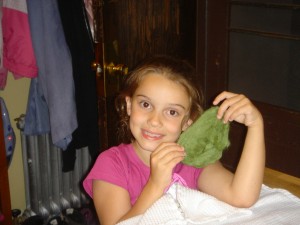Human by Nature: Reclaiming our Natural Human Heritage

Originally appears in the Winter 2008-2009 issue
Picture a field guide to mammals that includes a large intelligent primate, Homo sapiens sapiens, the human being. What sort of human would be depicted as a typical member of the species? What would be described as the human habitat? What is the range, diet and behavior of the species? Would humans be classified as an invasive species in some areas and a threatened one in others?
One can see the difficulty in trying to distill a complex species like ours into a few pages in a book. It is a challenge similar to the one countless educators face on a regular basis. As an educator at a science museum, I find myself in the position of trying to design meaningful lessons for an extremely varied human audience. My students can range in age from four to eighteen and encompass a wide range of ethnicities, cultural and socio-economic groups. Sometimes we don’t even speak the same language. For one entrusted with the task of teaching such a diverse bunch of learners about the natural world, the questions become “What method can I use to speak to all of them regardless of their origins and experiences?” and “How can I make what I teach about the natural world relevant?” The answers are relatively simple: bread and butter, fiber and fabric, huts and houses. Or to put it more elementally: food, clothing and shelter. The hypothetical field guide would surely mention that as diverse as we humans are, we are still one species with a common origin and have tendencies and behaviors characteristic of our kind. Food, clothing and shelter are fundamental, universal human needs and, as such, have meaning for all people regardless of background or situation.
This content is restricted to subscribers only.
If you are not yet a subscriber, please consider taking out a subscription here.
If you are an existing subscriber, kindly log in or contact us at info@greenteacher.com for more information.





